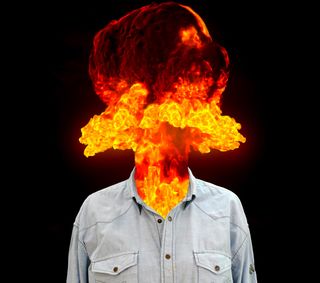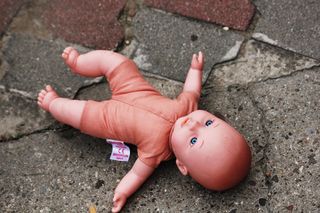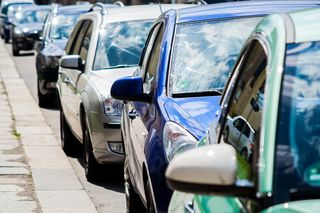Coronavirus Disease 2019
This Is What Happens When You Snap
How stressful situations like COVID-19 can make people suddenly turn violent.
Posted March 25, 2020 Reviewed by Gary Drevitch

With all of the uncertainties COVID-19 is causing in your life, you, like many people, may be feeling unsettled and on edge. Maybe in recent days you’ve been surprised by how intensely you reacted to a minor-seeming setback or inconvenience. Maybe someone in front of you drove too slowly for a bit too long, maybe a friend made a joke at your expense. And you lost it.
In a workshop I facilitated recently a participant explained it like this: “Suddenly, without expecting it, I become a monster. And it’s a very scary thing to be that monster.”
One factor common to many incidents of sudden aggression, even violence, is that they don’t just take the victims by surprise; they surprise the perpetrators as well.
When we suddenly “snap” and become violent, many of us feel that our outburst is wrong. We may find it deeply out of character. We often feel remorse right afterward.
So what’s going on here?
Neuroscientist Douglas Fields has studied the phenomenon and in his view, “We all wish to believe—need to believe—that we are in control of our behaviors and actions, but the fact is that in certain instances we are not.”
According to Fields, there are at least two different ways each of us tries to predict (maybe accurately, maybe not) and process threats. One pathway seems to be conscious and slower, and the other, unconscious and much faster. When the latter is triggered, in a split second and with little or no conscious awareness or planning, we may launch into violence we never would have expected from ourselves.
Although this happens so rapidly and can be more or less out of our control according to Fields, there are various influences that can make us more prone to such snapping.

In the BBC Horizon episode How Violent Are You? journalist Michael Portillo has to take care of a fake baby. The doll’s programming makes it cry and refuse to be soothed. Stressed and deprived of sleep, Portillo soon discovers that he’s on edge and feeling like he’s about to violently snap. The uncertainty and lack of control in the situation clearly gets to Portillo, as it could to some of us during a crisis like a pandemic, if we’re not careful.
Other factors that could make snapping more likely include being drunk, hot, hungry, or mentally tired. Another important cause for many people is adverse childhood experiences (ACEs). Physician Gabor Maté has compiled a wealth of research about how isolation, trauma, and neglect harm the developing brain, including various parts of the prefrontal cortex that help us regulate our impulses and weigh future outcomes of our actions. Maté explains that, in essence, the result later in life can be adults lacking not a free will, but a “free won’t.” So a history of trauma can mean we have particular difficulty interrupting impulses, such as the impulse to snap.
Another factor you might not think of but that turns out to be important is that, whether in the lab or other environments, simply seeing a picture of a knife or gun can push us into an aggressive mode we aren’t really aware of. So the specific environment we’re in and how it is priming us to feel matters a lot, perhaps making snapping more or less likely.
Since we may snap before even becoming conscious of feeling angry or threatened, it would be wrong to think that anger was the cause of the snapping. But neuroscience does seem to show that the categories we use to make sense of our world are key to our experiences of emotions like anger, as well as to our perception of situations as threats.
So training ourselves to evaluate and categorize what’s happening in less hostile ways can help us to have greater control, perhaps preventing future snapping. This is a critical skill each of us can practice.

When we’re cut off in traffic we might have any number of responses rather than just immediately deciding that we’ve been wronged and need revenge.
We could re-categorize the event by telling ourselves a different story. Maybe this is an inexperienced driver and they cut us off accidentally. Maybe they were just distracted. Maybe they feel badly that they did it. Even if it was somehow deliberate, maybe getting revenge isn’t that worthwhile.
Re-categorizing seems to help prevent snapping because we train ourselves over time to interpret situations more generously, so that when a stressor arises that might have provoked us to snap, we instead experience it more positively automatically. The automatically part is what's important here, and why continual practice is so essential.
Lest this post be too disturbing, it’s worth pointing out too that culture plays a huge role in violence, and so we can learn to be less violent. (I’ve written a book full of research and practical tips on that.) As well, the capacity we have to attack in a split-second also allows us to perform incredible acts of heroism. We’ve seen many examples of people stepping up to help each other in remarkably selfless ways during the COVID-19 pandemic. Evidence shows that we can even “snap” altruistically, putting our own lives at risk to save others without giving it a second thought.
Facebook image: fizkes/Shutterstock




